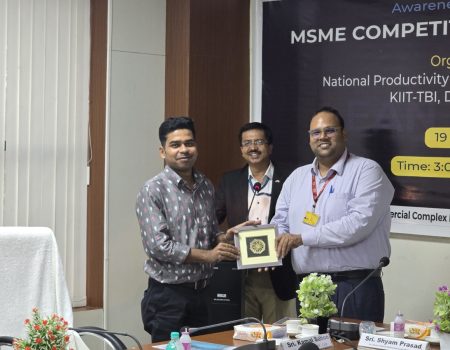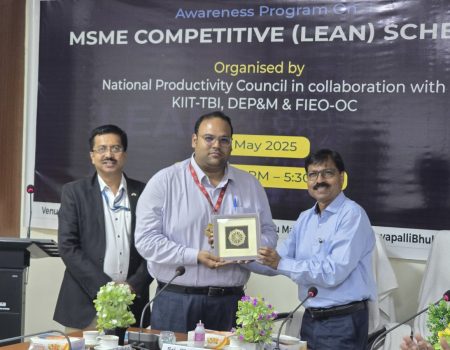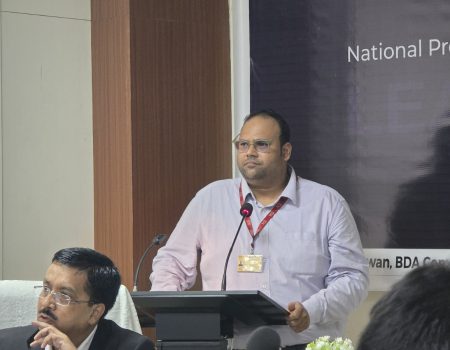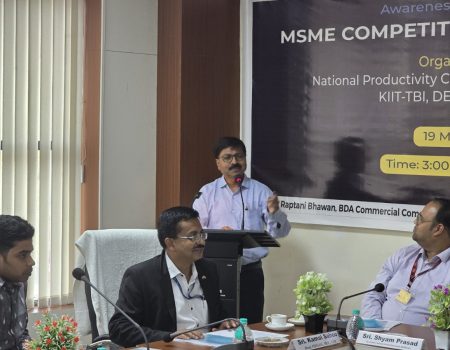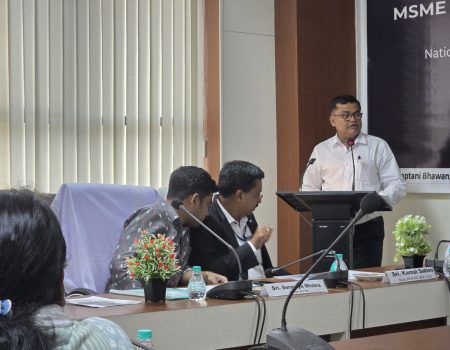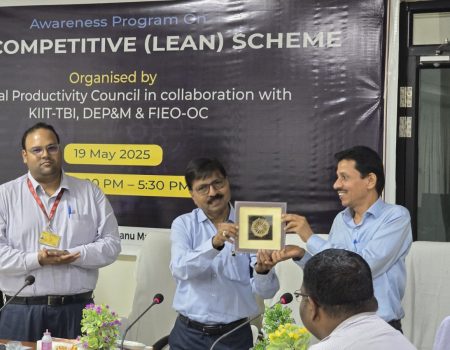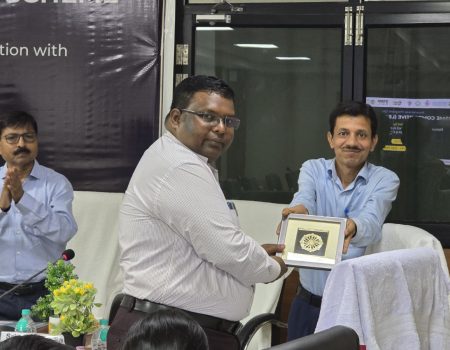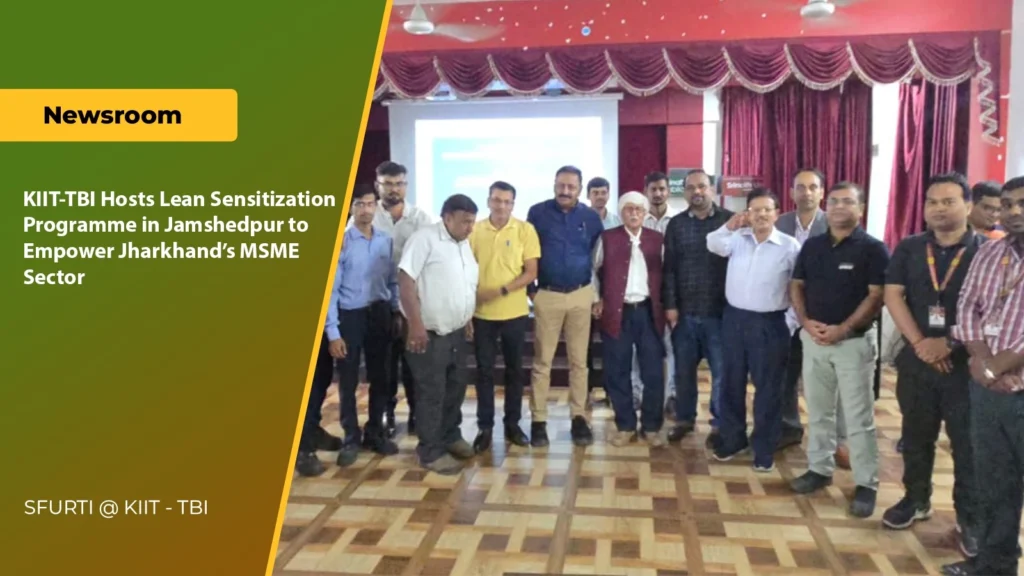In a significant move toward enhancing the efficiency, competitiveness, and long-term sustainability of the Micro, Small, and Medium Enterprises (MSME) sector in eastern India, KIIT Technology Business Incubator (KIIT-TBI), in collaboration with the Small Industries Development Bank of India (SIDBI), organized a Sensitization Programme on the MSME Competitive Lean Scheme (MCLS). The programme was held on 24th May 2025 at Srinath University, Jamshedpur, and witnessed enthusiastic participation from MSME representatives from the Industrial Sustainability and Reform Organization (ISRO) Adityapur Industrial Cluster.
The programme was coordinated by Mr. Prabhkar Singh, Lean State Coordinator (Bihar and Jharkhand), who played a pivotal role in mobilizing stakeholders and ensuring effective outreach. The session was graced by the warm presence of Prof. Chandreshwar Khan, an esteemed Lean expert and veteran trainer with decades of experience at Tata Motors, and Mr. Suramya Mishra, Manager, KIIT-TBI, who joined virtually to provide strategic insights on Lean implementation for MSMEs under the MCLS initiative. The event also saw active participation and support from key office bearers and representatives of the Industrial Sustainability and Reform Organization (ISRO) Adityapur industrial cluster, including Mr. Rupesh Katriar (President), Mr. Sandeep Mishra (General Secretary), Mr. Rajeev Shuklaa (Secretary), Mr. Uttam Kumar (Treasurer), Mr. Saurabh Chaudhary (Secretary), as well as Mr. Gourav Marwah, Mr. Piyush Nagelia, Mr. Santosh Pandey, Mr. Tarun Adak, Mr. Anurag Pathak, Mr. Sahil Kumar, Mr. Eqbal, and several other dedicated members who contributed to the success of the programme.
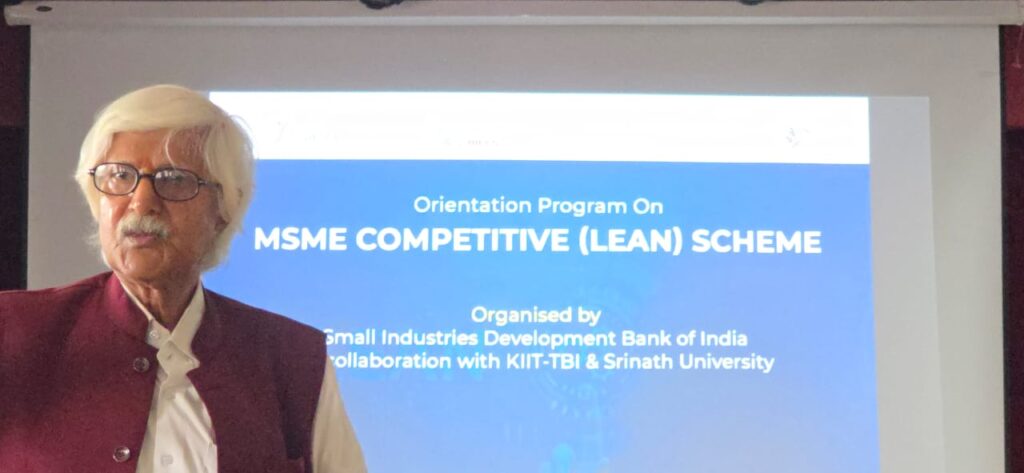
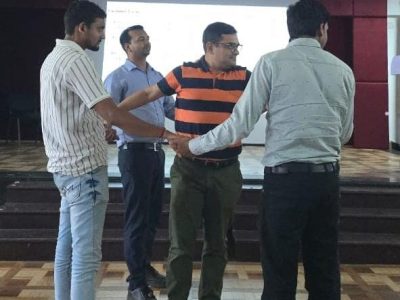
He guided participants through key Lean Management tools including 5S (Workplace Organization), Kaizen (Continuous Improvement), Value Stream Mapping (VSM), and Waste Elimination (Muda Reduction). These concepts were carefully contextualized to reflect the realities and constraints of MSMEs operating in a competitive and evolving industrial environment.
Adding further depth to the session, Mr. Suramya Mishra, in her virtual address, shared KIIT-TBI’s broader vision under the MSME Competitive Lean Scheme and the organization’s ongoing efforts to equip MSMEs with tools for process excellence, cost reduction, and quality enhancement. Her address emphasized the importance of structured capacity-building and KIIT-TBI’s commitment to acting as a catalyst for innovation-led transformation in the MSME ecosystem.
In a motivating address, Mr. Prabhkar Singh urged MSME stakeholders to move beyond awareness and take proactive steps by beginning with the basic level of Lean courses and certification, followed by the formation of Groups of Enterprises (GoEs). He emphasized the importance of collaborative efforts and peer learning in sustaining a Lean culture within industrial clusters. His inspiring message resonated strongly with the audience, many of whom expressed keen interest in joining future capacity- building cohorts.
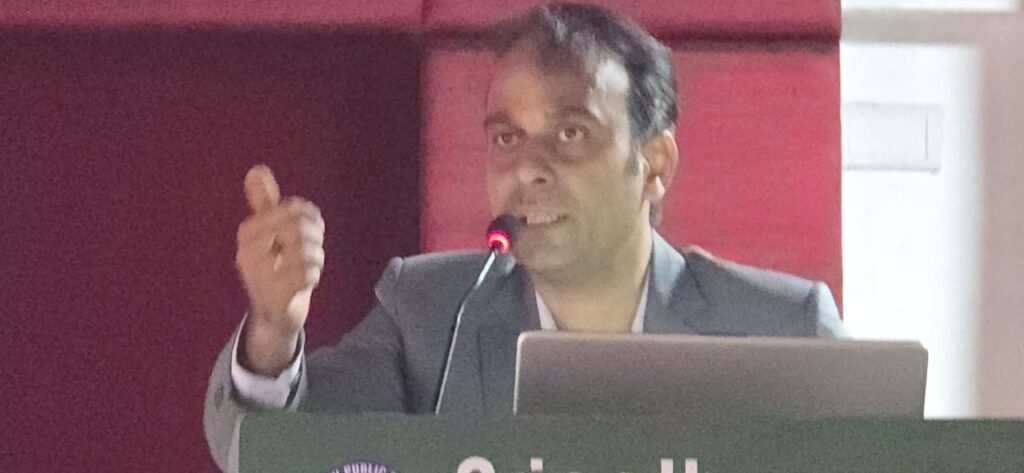
The interactive nature of the programme facilitated vibrantdiscussions, allowing participants to pose questions and gain practical insights from Prof. Khan’s real-life experiences. From challenges in workforce alignment to cost-effective implementation of Lean tools, the dialogue addressed ground- level concerns while offering viable solutions. The programme concluded on a highly encouraging note, with overwhelmingly positive feedback from participants. Many shared their intent to begin Lean transformations within their enterprises, recognizing the scheme as a valuable enabler of process efficiency, competitiveness, and resilience in today’s challenging business environment.
This initiative not only marks a successful outreach for the MSME Competitive Lean Scheme (MCLS) in Jharkhand, but also reaffirms the commitment of KIIT-TBI and SIDBI to fostering a culture of continuous improvement and operational excellence across India’s MSME sector. The programme stands as a model of effective collaboration between technical institutions, policy enablers, and industry experts to empower grassroots enterprises with the tools needed for sustainable growth.
Glimpses
